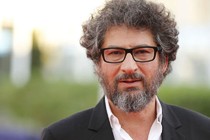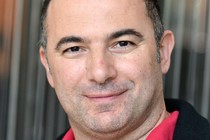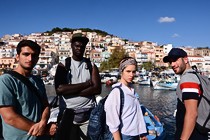FILMS France / Israel / Belgium / Italy
Live and Become
- The gap between "Go, live and become" and "You can cry now, if you want" comprises the initiatory journey of young Schlomo, life's painful apprenticeship
"Cry now, if you want". These words, uttered rather late to young Schlomo, the hero of Radu Mihaileanu’s new film, epitomise his initiatic journey, a painful life apprenticeship that will leave no cinemagoer unmoved. Why? Simply because the emotional pull of Live and Become [+see also:
trailer
interview: Denis Carot
interview: Didar Domehri
interview: Radu Mihaileanu
film profile], like all other basic human emotions in search of a voice, cannot be denied. It is these very emotions that are inevitably reflected in the extraordinary yet frightening fate of this damaged child who becomes an adult at peace with his contradictions. And yet, what could be less familiar to the western movie buff than the saga of the Ethiopian Jews, the Falashas, descendants of King Solomon and the Queen of Sheba, emigrating clandestinely to the Sudan, where they hope to be airlifted to Jerusalem. It’s winter 1984 and 4,000 men, women and children die en route before the survivors end up heaped together in a Sudanese camp, to which Radu Mihaileanu’s camera descends slowly from the mountains and the heavens bidding us enter a world of accurately portrayed, heart-rending feelings, as a kind of exorcism that will lift the lid on a neglected episode of history, on the forgotten children. Among them, he who will shortly be known as Schlomo, whom his mother shoves onto the plane, abandoning him even though he’s only nine years old, and even though he’s not Jewish, the better to save him from the misery and death that continue to hover over this part of Africa. "Boys don’t cry" and "Live and become" are the last words of this mother to her son soon to land completely distraught in a country which was never his Promised Land. The film immediately latches onto this idea of motherly love, its physical loss symbolised by the way Schlomo looks at the moon and his incessant spiritual quest among other women who will each give to the child, then the adolescent and finally the adult, an inkling of this universal sentiment anchored deep within them.
Inspired by a subtle script that allows the past and its secrets to emerge slowly, Radu Mihaileanu manages the amazing feat of meeting head on (without ever being overwhelmed by) the themes of the daily experience of racism, religious intolerance, integrating into a new society while never forgetting the old one, the Palestinian question and the inheritance of the founders of the first kibbutzes. But, in particular, he follows, step by step, the exceptional destiny of a person who is gradually to discover love of life in all its forms, from the secret shared with his first adoptive Ethiopian mother to the strength of character of his second mother (a Yaël Abecassis perfect in her alternation between the gentle touch and the firm hand) in the struggle against prejudices stemming from skin colour, with, in addition, the feelings he experiences for a young girl his own age. With the occasional salutary witticism providing some light relief from the emotionally charged atmosphere, the tale is nothing if not honest, never attempting to exaggerate matters and respecting each character’s limits, in particular the adoptive father subtly played by Roschdy Zem. Having become a Jew capable of standing up for himself in any Talmudic battle, Schlomo (played by three young actors born to the role) will learn to overcome the keen sense of being different that will haunt him until his dying day, the experience of a child obliged to walk in the shadow of death, his heart forever broken by the separation from his mother, to whom he writes incessantly and whom he hopes to see again one day. Certain dissatisfied critics might attack the film on the grounds of its insistent tugging at the heartstrings, but that would be doing a disservice to an uncompromising humanist message, filmed with a modesty, simplicity and efficiency capable nonetheless of taking a back seat to history. A great film by a plain-speaking film-maker which is also the work of a human being made resolutely of the right stuff.
(Translated from French)
Did you enjoy reading this article? Please subscribe to our newsletter to receive more stories like this directly in your inbox.





















